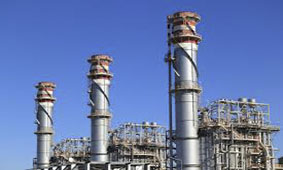
Refinery run cuts reduce anode-grade coke supply

Refineries around the world are cutting rates because of lower jet fuel and gasoline demand as people halt travel to slow the spread of the Covid-19 pandemic. Gasoline demand has fallen by about a quarter in the US and far more in some other countries that have enacted strict restrictions on movement.
The effect on coke production varies by refinery, but most market participants agree there will be an overall reduction in coke volume, as some refineries have cut rates by as much as 50pc and even idled crude distillation units.
The biggest demand effects of the virus lockdowns have been on aviation and passenger vehicles. Diesel demand is still relatively firm as trucks and industrial equipment continue to operate. Refiners are, therefore, looking to maximise distillate production and reduce production of lighter products.
Cokers are designed to use heavier crudes and to produce more distillate, so coke volumes may not fall by as much as refiners' throughput cuts would imply.
Some refineries may also make adjustments to crude slates if weak demand persists. The Energy Information Administration said yesterday that demand for transportation fuels could take more than 18 months to fully recover. Crude slate changes could affect the quality of coke produced as well as volumes.
Very light, sweet crudes, which some US Gulf refiners had previously been running at record levels, are likely to be the first to be cut as refiners look to reduce naphtha production. Some medium sour crudes may give a better distillate yield, which could prompt refineries to add more of these crudes. However, many anode-grade refineries are constrained by technical issues and would require capital investment to adjust to sour crudes, which could limit any major quality changes.
The run cuts come on top of reductions at some anode-grade refineries as a result of the new IMO sulphur limitations on bunker fuels. Refiners with low-sulphur vacuum tower bottoms have an incentive to blend these into bunker fuel rather than run them through the coker, which has been reducing coke production rates at some facilities. Overall run cuts as a result of low gasoline demand will only add to these supply reductions.
So far, most calciners say the lower green coke supply has not had an effect on operations, although at least one producer was heard to have delayed some calcined coke cargoes as a result of lacking green coke feed.
By Lauren Masterson


Trump weighs using $2 billion in CHIPS Act funding for critical minerals

Codelco cuts 2025 copper forecast after El Teniente mine collapse

Electra converts debt, launches $30M raise to jumpstart stalled cobalt refinery

Barrick’s Reko Diq in line for $410M ADB backing

Abcourt readies Sleeping Giant mill to pour first gold since 2014

Nevada army depot to serve as base for first US strategic minerals stockpile

SQM boosts lithium supply plans as prices flick higher

Viridis unveils 200Mt initial reserve for Brazil rare earth project

Tailings could meet much of US critical mineral demand – study

Kyrgyzstan kicks off underground gold mining at Kumtor

Kyrgyzstan kicks off underground gold mining at Kumtor

KoBold Metals granted lithium exploration rights in Congo

Freeport Indonesia to wrap up Gresik plant repairs by early September

Energy Fuels soars on Vulcan Elements partnership

Northern Dynasty sticks to proposal in battle to lift Pebble mine veto

Giustra-backed mining firm teams up with informal miners in Colombia

Critical Metals signs agreement to supply rare earth to US government-funded facility

China extends rare earth controls to imported material

Galan Lithium proceeds with $13M financing for Argentina project

Kyrgyzstan kicks off underground gold mining at Kumtor

Freeport Indonesia to wrap up Gresik plant repairs by early September

Energy Fuels soars on Vulcan Elements partnership

Northern Dynasty sticks to proposal in battle to lift Pebble mine veto

Giustra-backed mining firm teams up with informal miners in Colombia

Critical Metals signs agreement to supply rare earth to US government-funded facility

China extends rare earth controls to imported material

Galan Lithium proceeds with $13M financing for Argentina project

Silver price touches $39 as market weighs rate cut outlook

















